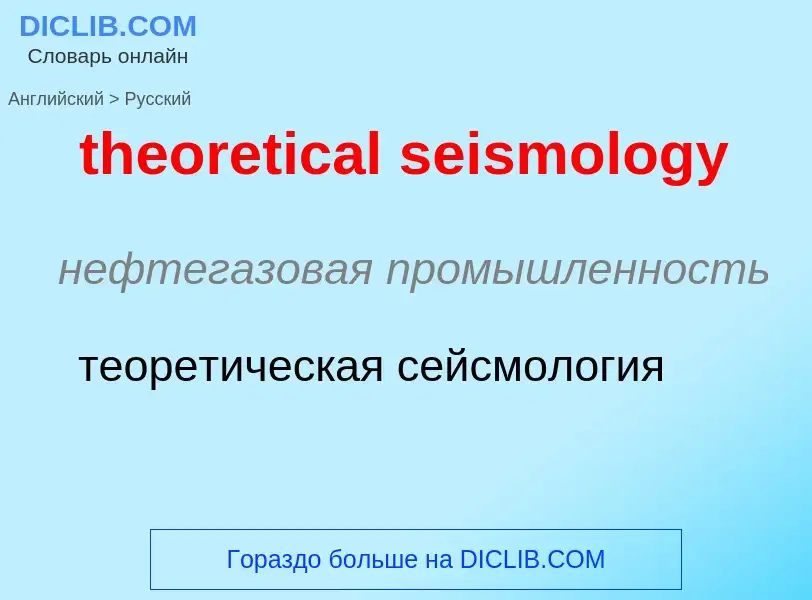Tradução e análise de palavras por inteligência artificial ChatGPT
Nesta página você pode obter uma análise detalhada de uma palavra ou frase, produzida usando a melhor tecnologia de inteligência artificial até o momento:
- como a palavra é usada
- frequência de uso
- é usado com mais frequência na fala oral ou escrita
- opções de tradução de palavras
- exemplos de uso (várias frases com tradução)
- etimologia
theoretical seismology - tradução para russo
нефтегазовая промышленность
теоретическая сейсмология
[saiz'mɔlədʒi]
общая лексика
сейсмология
нефтегазовая промышленность
сейсмологические исследования
сейсмическая разведка
Смотрите также
существительное
общая лексика
сейсмология
Definição
Wikipédia
A marsquake is a quake which, much like an earthquake, would be a shaking of the surface or interior of the planet Mars as a result of the sudden release of energy in the planet's interior, such as the result of plate tectonics, which most quakes on Earth originate from, or possibly from hotspots such as Olympus Mons or the Tharsis Montes. The detection and analysis of marsquakes could be informative to probing the interior structure of Mars, as well as identifying whether any of Mars's many volcanoes continue to be volcanically active.
Quakes have been observed and well-documented on the Moon, and there is evidence of past quakes on Venus. However, marsquakes were not definitely observed until 2019. Compelling evidence has been found that Mars has in the past been seismically more active, with clear magnetic striping over a large region of southern Mars. Magnetic striping on Earth is often a sign of a region of particularly thin crust splitting and spreading, forming new land in the slowly separating rifts; a prime example of this being the Mid-Atlantic Ridge. However, no clear spreading ridge has been found in this region, suggesting that another, possibly non-seismic explanation may be needed.
The 4,000 km (2,500 mi) long canyon system, Valles Marineris, has been suggested to be the remnant of an ancient Martian strike-slip fault. The first confirmed seismic event emanating from Valles Marineris, a quake with a magnitude of 4.2, was detected by InSight on 25 August 2021, proving it to be an active fault.

![Cutaway illustration showing ''[[InSight]]''{{'s}} seismometer underneath the white windshield Cutaway illustration showing ''[[InSight]]''{{'s}} seismometer underneath the white windshield](https://commons.wikimedia.org/wiki/Special:FilePath/PIA22320 – Cutaway of SEIS (Artist's Concept).jpg?width=200)



![2004 Indian Ocean earthquake]] 2004 Indian Ocean earthquake]]](https://commons.wikimedia.org/wiki/Special:FilePath/2004 Indonesia Tsunami Complete.gif?width=200)
